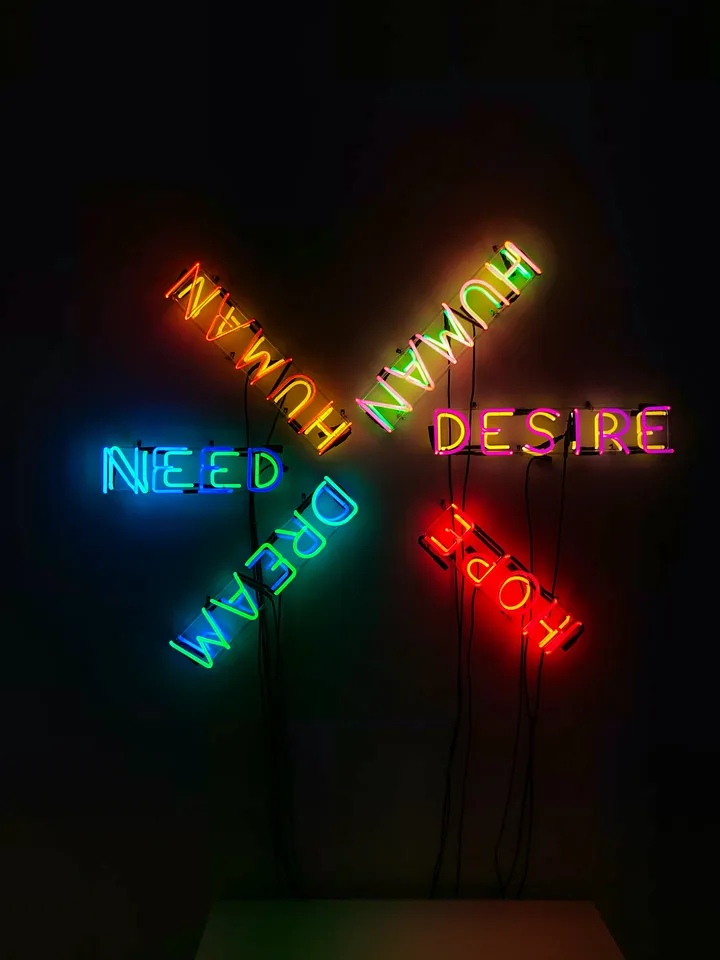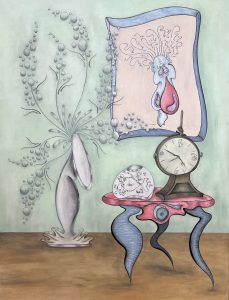Three Things You Should Know
In the prior article, I introduced NAM — The Needs Alignment Model of happiness. If you have not read that article, review it before proceeding so you can use the information I’m about to share.
Let’s begin by answering the questions posed at the end of that prior article. For all three, I’ll give you the one answer. Each item in the list satisfies each of the seven needs.
I can feel you frowning. How the hell does buying a big house satisfy the need for meaning? Or connection?
By the end of this article in the series, you will appreciate how your needs are satisfied — or not, how to maintain a balance between the needs, how the needs work together, and why you want and pursue what you do. Here are the four
A Deeper Connection
If you have done yoga or studied the chakras, you may have sensed a similarity between the positive psychology seven universal needs and the seven chakras. And you would be correct! Thousands of years ago, the Hindu people recognized these universal needs — and their expression in the mind and body.
Now before you flip from the article because it’s too woo-woo for you, process this concept.
- Stability: Our need for stability is akin to the root chakra. In the root, we seek safety, security, and the things we need to survive. An unstable root chakra results in fear that we will die. Our skeletal system and excretory system are root-chakra. Consider this: If you don’t eat, you don’t shit and you die. It’s logical. Yogi’s instruct those who feel unstable to walk barefoot to reconnect with the earth. Those with a healthy root feel grounded. It’s not semantics. If you are satisfying your need for stability, you will feel safe and grounded. If you are feeling fear at any level, it’s your need for stability that is threatened.
- Stimulation: Our need for stimulation is our sacral chakra. Ancient and modern expression of the same need. Our sacral chakra is the home of movement, sensation, action, and innate creativity (sexuality and procreation). An unstable sacral chakra results in shame and regret. Our life is too risk-averse or too risky. (More about this in the next section). Those with a healthy sacral chakra will move freely with little pain, be open to new experiences and sensations, have a healthy sex life, and enjoy bubble baths! If you can laugh and have fun, you satisfy that need for stimulation. If you are ashamed of your feelings or squashing your emotions, your stimulation need is being ignored.
- Identity: We need to be seen, period. To be appreciated for who you are. To be recognized as unique. Your need for identity is the same as your solar chakra, which is connected with your digestive system. Chakra therapists note if you have a healthy digestive system, you have energy. You can exercise your will. And that’s the identity need: You can assert yourself as you. You will have a healthy sense of self and strong boundaries. If you experience humiliation because of who you are, your identity need is unsatisfied (or ignored).
- Connection: The need for connection is, arguably, the most powerful human need. We require others to survive. Accordingly, connection is akin to one’s heart chakra. It is the center of the system and regulates the circulatory system (heart and lungs). While you need to exert your will, you also need to be compassionate, understanding, and at-one with others. You don’t want to compete or weigh your value all the time. Sometimes you want that parity. If you experience grief, your heart chakra is damaged — and your need for connection is unsatisfied.
- Expression: Our need for expression is connected to every form of communication, just as the throat chakra is connected to our speech and hearing. You need to speak your truth, give from your reality, and express your passion. Our need for expression is our open creativity. When we act with pretense or lie, our need for expression is harmed. And, yes, expression is connected with your identity need. The person who has a powerful voice, speaks up with his or her viewpoint, and honestly gives of himself or herself is satisfying this need.
- Awareness: The third eye chakra, the seat of intuition, represents our need for awareness. Yes, this is your brain chakra. But it’s more than just thinking. Those with healthy third eyes, and who satisfy their awareness need, absorb information clearly. They are logical and realistic. They learn quickly and are open to information — not threatened by information. You satisfy your need for awareness when you read or learn a new skill, meet new people, have a daydream session, or attempt to understand a complex subject. If you suffer from delusions, your awareness need is impinged.
- Meaning: The crown chakra, representing our connection with a higher power, the universe, the collective unconscious, however you interpret it, is the same as the need for meaning. When a person is not satisfying his or her need for meaning, he or she will feel like an outsider, disconnected from life. Life becomes meaningless. Why bother? Notice how this seventh need is inherent in all the others.
Now, notice how each need is inherent in all the others. Think about it.
Why It Feels So Good and Preference
While the seven needs are universal, we do not weigh them the same for each individual. Someone who values excitement and change will weigh stimulation more important than security. Someone who values family will be less competitive and less likely to seek recognition (as in feminine or collectivist cultures). Compare that person to assertive, go-getters who seek glory and fame (as in masculine or individualistic cultures).
We all seek to satisfy our stability needs. To eat, to have a place to live, to have enough money. Yes. And we all need some sort of stimulation to feel alive. A new restaurant to visit, a new phone, a vacation. Yes. But where one person will seek to travel four times a year (stimulation preference), another will never vacation (stability preference). Where one person will watch every new show, invest in risky ventures, sky dive (stimulation preference), another will sit on the same couch, watch the same movies and holding onto her bonds for dear life (stability preference).
Without getting into whether either preference is right or wrong, we can conclude that values, attitudes, life experience and culture do effect which needs an individual will focus. Where I must try new recipes and have a different meal each day of the year, my friend microwaves the same six things and doesn’t care. I prefer stimulation; she prefers stability.
We also know that no matter the person, when an activity or situation satisfies four out of the seven needs, the person will continue to pursue that activity or situation. So, when Gloria buys that new phone, she feels stable, stimulated, special (identity), connected to others with that phone or hip technology, like she is expressing herself… She will want that new phone every time. Over and over.
It feels so good.
Balance and Imbalance
As chakra therapists will explain, when one chakra is out of balance, the entire system is out of balance. Maslow and theorists since have attempted to articulate this truth. If you feel left out (lack of connection), your self-esteem (identity) and stability needs will suffer. You may clam up or pretend to be someone you are not (identity and expression needs).
The needs work as a system.
Needs can also become blocked (or ignored). A person who can’t hold down a job has a blocked stability need — but also an overactive stimulation need. Yes, needs can receive too much attention just as they can be ignored or blocked. The needs works as a system — and each need requires attention.
I explained in the first article how the needs balance in pairs: stability and stimulation; identity and connection; expression and awareness; with meaning acting as an umbrella. Consider the career-driven person who seeks recognition but who is never home with family or has no time for friends. Her identity need outweighs her connection need. But we can also determine that her connection need is being ignored and her identity need is receiving too much attention.
However, for that individual, the focus on identity may be comfortable for her. Or she may find herself perpetually lonely. Importantly, our innate needs must remain in balance according to our personal values. This is where analysis can help an individual take control of his or her own life. What truly works for you?
Here are some specific examples of imbalance:
Blocked stability need: Can’t hold a job. Financial issues, including excessive debt. Chronic illness. I can’t have anything. I’m not safe.
Overactive stability need: Refuses to take a risk. Overly concerned with privacy and alarm systems. I’m not safe. I am defined by my stuff.
Blocked stimulation need: Doesn’t laugh or joke. Reviled by sex or physical contact. Not creative. I’m the fun police. Pleasure makes me feel guilty.
Overactive stimulation need: Promiscuous. Experiments with drugs, or worse. Can’t sit still. Takes dangerous risks. Fuck it, who cares? Someone else can take care of the hard stuff.
Blocked identity need: No or wavering boundaries. Can’t finish anything. Can’t start anything. Low self-esteem. Poor me. No one cares about me. It’s not my fault. I always lose.
Overactive identity need: Unrealistic self-esteem. Ridgid boundaries. Obnoxiously competitive. My way or no way. You suck, I’m number one. I always win.
Blocked connection need: Loner. Often puts more focus on identity. The black sheep. Doesn’t let anyone in. No one loves me. I’m not lovable. And I don’t care about anyone.
Overactive connection need: Needy. Overattached and often codependent. Often has a blocked identity need. Love me. Don’t leave me. I love you so much it hurts.
Blocked expression need: Lies. Pretends. Is not who they pretend to be. Passive aggressive. Aloof.
Overactive expression need: Doesn’t spot social cues. Talks at others; zero filter. Forces his or her ideas and opinions onto others.
Blocked awareness need: Can’t learn. Doesn’t understand. Illogical. Can’t decipher symbols (math) or nonverbal language. Doesn’t dream. Has no imagination.
Overactive awareness need: Equates reality with his or her imagination. Sees things; visions and ghosts. Believes he or she is psychic and knows what everyone is thinking.
Blocked meaning need: Apathetic or worse. Often suicidal. Finds no purpose or meaning in life and living — and has zero spirituality.
Overactive meaning need: Distracted. Flighty and, in his or her reality, is connected to everything all the time. Perfectionist.
In the next installment of this series, you will learn how to identify the needs you value — and where you may experience imbalance. Be prepared for the ride of your life — literally.



